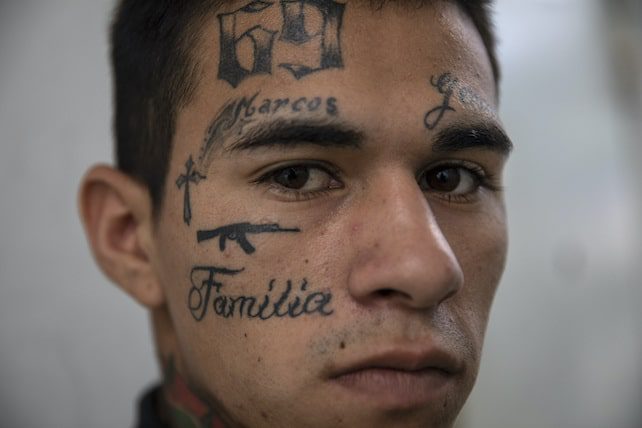ROSARIO, Argentina (AP) — The loud noise from the opening of an iron door marks Jorge Anguilante’s exit from the Pinero prison every Saturday. He heads home for 24 hours to minister at a small evangelical church he started in a garage in Argentina’s most violent city.
Before he walks through the door, guards remove handcuffs from “Tachuela” — Spanish for “Tack,” as he was known in the criminal world. In silence, they stare at the hit-man-turned-pastor who greets them with a single word: “Blessings.”
The burly, 6-foot-1 (1.85-meter) man whose tattoos are remnants of another time in his life—back when he says he used to kill—must return by 8 a.m. to a prison cellblock known by inmates as “the church.”
His story, of a convicted murderer embracing an evangelical faith behind bars, is common in the lockups of Argentina’s Santa Fe province and its capital city of Rosario. Many here began peddling drugs as teenagers and got stuck in a spiral of violence that led some to their graves and others to overcrowded prisons divided between two forces: drug lords and preachers.
Over the past 20 years, Argentine prison authorities have encouraged, to one extent or another, the creation of units effectively run by evangelical inmates—sometimes granting them a few extra special privileges, such as more time in fresh air.
The cellblocks are much like those in the rest of the prison — clean and painted in pastel colors, light blue or green. They have kitchens, televisions and audio equipment — here used for prayer services.
But they are safer and calmer than the regular units.
Violating rules against fighting, smoking, using alcohol or drugs can get an inmate kicked back into the normal prison.
“We bring peace to the prisons. There was never a riot inside the evangelical cellblocks. And that is better for the authorities,” said the Rev. David Sensini of Rosario’s Redil de Cristo church.
Access is controlled both by prison officials and by cellblock leaders who function much like pastors—and who are wary of attempts by gangs to infiltrate.
“It has happened many times that an inmate asks to go to the evangelical pavilion to try to take it over. We need to keep permanent control over who enters”, said Eric Gallardo, one of the leaders at the Pinero prison.
___
Rosario is best known as a major agricultural port, the birthplace of revolutionary leader Ernesto “Che” Guevara and a talent factory for soccer players, including Lionel Messi. But the city of some 1.3 million people also has high levels of poverty and crime. Violence between gangs who seek to control turf and drug markets has helped fill its prisons.

